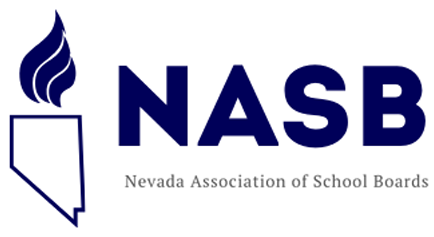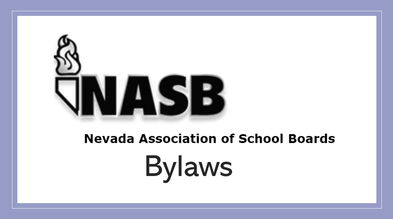About NASB
The Nevada Association of School Boards is dedicated to strengthening public schools through local citizen control. Established in 1963, the organization observed its 56th birthday in 2019. The Association was officially launched by Thomas T. Tucker, Jr., and representatives from all seventeen Nevada school districts. Today all 17 school districts in Nevada are members of the association giving a common voice for public education.
The purpose of the Association as stated in the filing of the corporation papers on May 31, 1963, was to
“organize solely for the advancement of civic activities in the State of Nevada and the counties thereof. This corporation is formed for the purpose of coordination of programs and procedures pertaining to policy organization and administration of the several school districts in the State of Nevada. Constant improvement of public school education in the State of Nevada; Closer cooperation among the Boards of Trustees of the several school districts of the State of Nevada; and Obtaining information for and providing assistance individually to the Boards of Trustees and the members thereof.”
Much has changed in the last 56 years. Today the Association’s Bylaws place governance in the hands of an Executive Committee, comprised of President, President-Elect, Vice President, Legislative chairman, and Immediate Past President and Past Presidents as well as a representative from Washoe County School District Representatives from each of the seventeen school districts serve on the NASB Board of Directors. Today, 100% of the school boards hold active membership and support the work of the Association through annual dues. Corporate friends of the Association also contribute to activities provided for member school boards.
NASB focuses upon three primary strategies to accomplish its mission—Advocacy, Boardsmanship, and Communication.
Mission
NASB supports success for all students through local school board leadership.
Vision
NASB envisions a state where the public schools are widely recognized as the foundation of a free democratic society, where local citizen governing boards are fully vested with the means to advance the best interests of their students and the public, and where the futures of all children are driven by their aspirations not bounded by their circumstances.
Strategic Objectives
Identifying Leadership Potential and Building Leadership Capacity on Local School Boards
Advancing local control through an elected board with the authority to act on policy issues impacting school districts;
Building collaborative relationships between local boards and other policymaking groups to ensure that all involved parties have the opportunity to comment and be involved in the process;
Targeting professional development for new and veteran school board members with an emphasis on effective governance and policy development;
Providing professional development specific to the needs of an individual board and communicating new information that will impact all school boards about federal and State initiatives;
Recruiting and encouraging new candidates for school board positions; and
Expanding mentoring opportunities.
Defining and Expanding Educational Advocacy
Communicating more continuously and determinedly with legislators, other elected officials, and stakeholders on behalf of K-12 public education, including training for school board members to do so effectively;
Supporting school board members in their outreach efforts to young people in their communities;
Engaging with the general public to better educate everyone about the importance of public education and that a strong K-12 educational system improves the workforce, increases personal income, reduces social costs, and elevates home values;
Providing a unified voice that represents school board members in all seventeen school districts;
Promoting collaboration and teamwork between the Association and individual school board members;
Defending funding, including individual district revenue streams and resources, eliminating unfunded mandates, and getting more resources for PK-12; and
Supporting strategies for reforming curriculum including P20W.
More Efficiently Using Resources
Improving accountability and transparency for efficiently using resources; and
Facilitating professional development for school boards regarding fiscal oversight and accountability.

